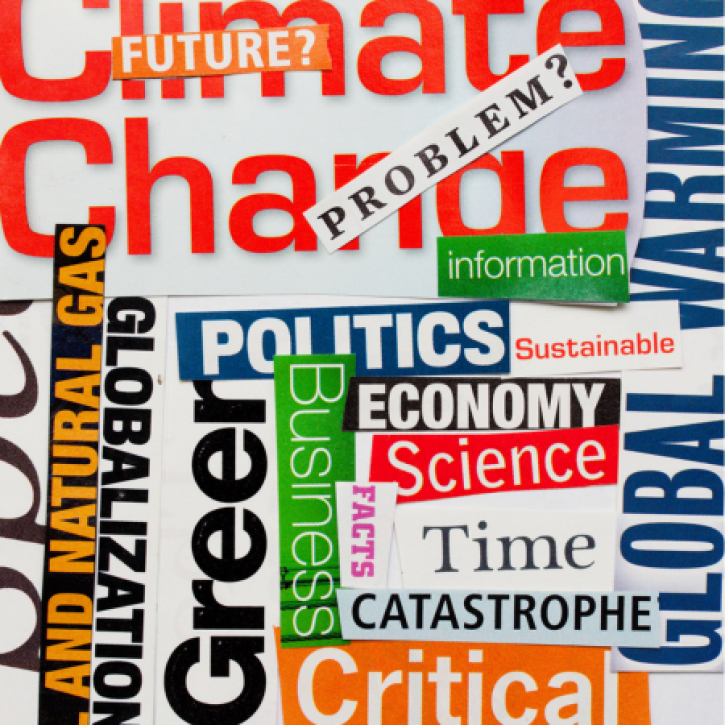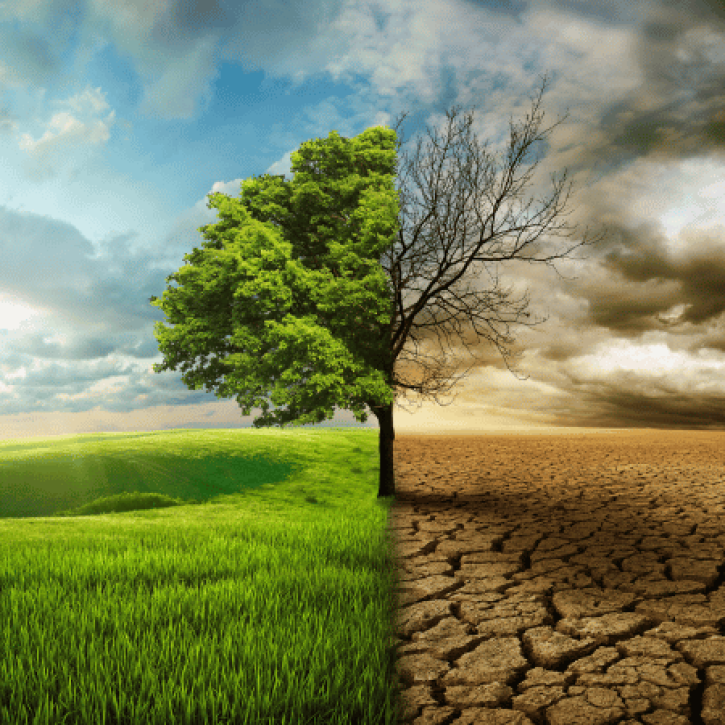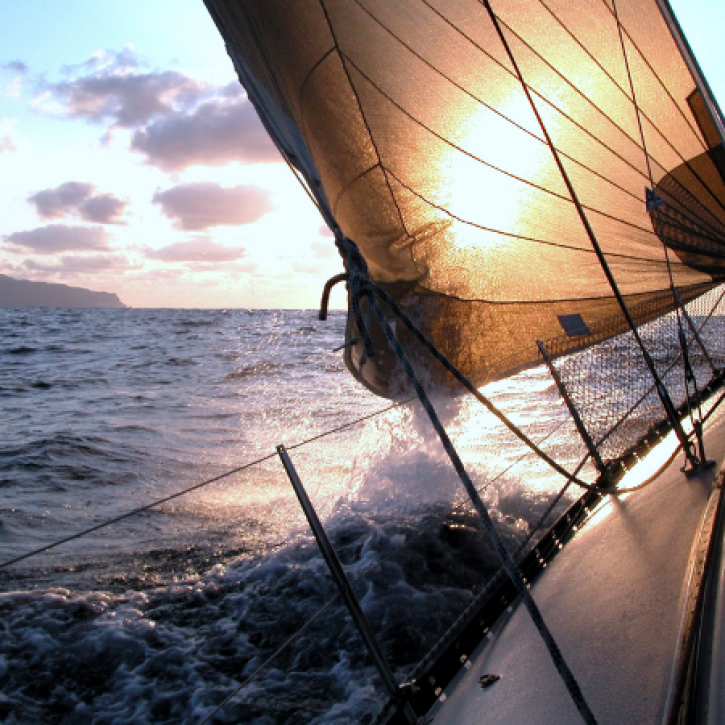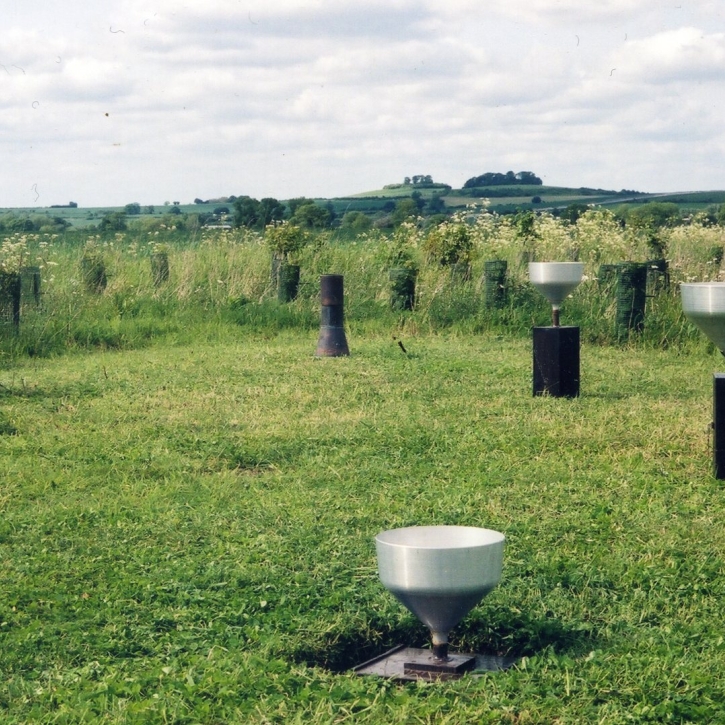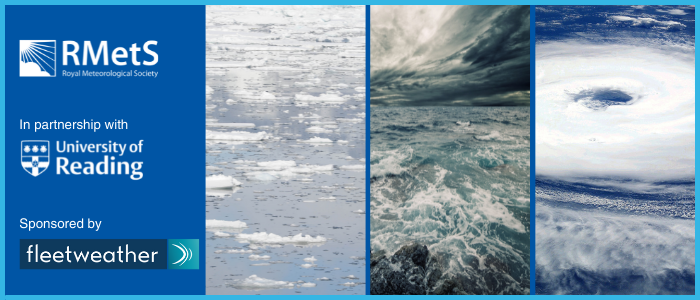

MASTERCLASS | Tropical Cyclones in the Climate System
LOCATION
SPEAKER: Professor Pier Luigi Vidale, University of Reading
This session was part of our Masterclass Series The Oceans and Atmosphere: Maritime Meteorology and Climate, strengthening our understanding of the interactions between the ocean and the atmosphere in partnership with the University of Reading and sponsored by Fleetweather.
This Masterclass Series will covered broad topics relevant to marine meteorology such as tropical cyclone
development and the latest science relating to conceptual models; changes in Arctic sea ice and future
projections that will impact marine routing through the Arctic; and recent developments in ocean modelling
and atmospheric/ocean coupling in numerical weather prediction.
The webinars were free of charge and were held from 15:00 to 16:30 BST with a presentation followed by the opportunity for questions and discussion with the speaker. Whilst the webinars are part of a series you can choose which to attend and attendance at all three is not compulsory.
Sponsored by
Tropical Cyclones in the Climate System - Physical Processes and their Representation in Climate Models
A generation of “weather resolving” global climate models (GCMs) has been emerging over the last ten years, capable of credibly representing mid-latitude cyclones (storms) in terms of their structure and dynamics, as well as reasonably representing tropical cyclones from the point of view of location and frequency, if not the full range of intensities.
We present results from multi-model intercomparisons of hurricane storm tracks in six European GCMs, including the statistics of ex-tropical storms impacting the NE coast of the US and NW coast of Europe, respectively, which are expected to pose a larger risk in projections of future climate change.
A new generation of “Global Storm Resolving Models” is now emerging, exploiting some of the largest supercomputers on Earth, and starting to deliver credible representations of the full range of Tropical Cyclone intensities, based on the near-direct representation of some of the underpinning mechanisms. These developments enables us to test the more traditional models in a more rigorous way at locations where observations are scarce.
These simulations, combined, enable the construction of “storm catalogues” that can be used to complement the rare and inhomogeneous observational records.
We end with two applications of storm catalogues for impacts studies:
1) Hybrid North Atlantic storms crossing key “landfall gates”
2) Hands-on example of catastrophe modelling in Bermuda with a synthetic hurricane event set
Pier Luigi Vidale is Professor of Climate System Science in the University of Reading’s Meteorology Dept. and a Senior Scientist at the Climate Directorate of the National Centre for Atmospheric Science (NCAS-Climate ) in Reading. His research lies at the forefront of high-resolution global climate modelling, with a particular focus on wind storms and tropical cyclones, land surface processes (including droughts and heatwaves) and biosphere-atmosphere interactions. He is the joint-director of the bi-annual NCAS Climate Modelling Summer School and European Earth System and Climate Modelling Summer School.
Sea Ice in the Climate System I15:00 - 16:30 I 6th October 2021
SPEAKER I Dr David Schroeder, Centre for Polar Observation and Modelling, University of Reading
Ocean Modelling I 15:00 - 16:30 I 13th October 2021
SPEAKER I Dr Samantha Lavender, Director, Pixalytics Ltd
This Series continues the success of previous years' Masterclasses and is intended for an audience with an established level of understanding of the topics being discussed.
The Series is aimed at providing CPD for those advancing the science and working in the production of
services for shipping, offshore activities (drilling, wind and tidal energy), catastrophe modelling, insurance,
search and rescue and naval operations. It will also provide an update in the science of the interactions between
the oceans and atmosphere in the development of weather systems and the impact of climate change.
In particular, the Masterclasses are ideal for RMets, CMets and relevant organisations and aims to support participants in:
- Developing an in-depth understanding of meteorological and climate science (theory, principles, concepts,techniques) with relevance to its application
- Keeping up-to-date with current scientific developments and recent advances in the field
SPEAKER: Professor Pier Luigi Vidale, University of Reading
This session was part of our Masterclass Series The Oceans and Atmosphere: Maritime Meteorology and Climate, strengthening our understanding of the interactions between the ocean and the atmosphere in partnership with the University of Reading and sponsored by Fleetweather.
This Masterclass Series will covered broad topics relevant to marine meteorology such as tropical cyclone
development and the latest science relating to conceptual models; changes in Arctic sea ice and future
projections that will impact marine routing through the Arctic; and recent developments in ocean modelling
and atmospheric/ocean coupling in numerical weather prediction.
The webinars were free of charge and were held from 15:00 to 16:30 BST with a presentation followed by the opportunity for questions and discussion with the speaker. Whilst the webinars are part of a series you can choose which to attend and attendance at all three is not compulsory.
Sponsored by
Tropical Cyclones in the Climate System - Physical Processes and their Representation in Climate Models
A generation of “weather resolving” global climate models (GCMs) has been emerging over the last ten years, capable of credibly representing mid-latitude cyclones (storms) in terms of their structure and dynamics, as well as reasonably representing tropical cyclones from the point of view of location and frequency, if not the full range of intensities.
We present results from multi-model intercomparisons of hurricane storm tracks in six European GCMs, including the statistics of ex-tropical storms impacting the NE coast of the US and NW coast of Europe, respectively, which are expected to pose a larger risk in projections of future climate change.
A new generation of “Global Storm Resolving Models” is now emerging, exploiting some of the largest supercomputers on Earth, and starting to deliver credible representations of the full range of Tropical Cyclone intensities, based on the near-direct representation of some of the underpinning mechanisms. These developments enables us to test the more traditional models in a more rigorous way at locations where observations are scarce.
These simulations, combined, enable the construction of “storm catalogues” that can be used to complement the rare and inhomogeneous observational records.
We end with two applications of storm catalogues for impacts studies:
1) Hybrid North Atlantic storms crossing key “landfall gates”
2) Hands-on example of catastrophe modelling in Bermuda with a synthetic hurricane event set
Pier Luigi Vidale is Professor of Climate System Science in the University of Reading’s Meteorology Dept. and a Senior Scientist at the Climate Directorate of the National Centre for Atmospheric Science (NCAS-Climate ) in Reading. His research lies at the forefront of high-resolution global climate modelling, with a particular focus on wind storms and tropical cyclones, land surface processes (including droughts and heatwaves) and biosphere-atmosphere interactions. He is the joint-director of the bi-annual NCAS Climate Modelling Summer School and European Earth System and Climate Modelling Summer School.
Sea Ice in the Climate System I15:00 - 16:30 I 6th October 2021
SPEAKER I Dr David Schroeder, Centre for Polar Observation and Modelling, University of Reading
Ocean Modelling I 15:00 - 16:30 I 13th October 2021
SPEAKER I Dr Samantha Lavender, Director, Pixalytics Ltd
This Series continues the success of previous years' Masterclasses and is intended for an audience with an established level of understanding of the topics being discussed.
The Series is aimed at providing CPD for those advancing the science and working in the production of
services for shipping, offshore activities (drilling, wind and tidal energy), catastrophe modelling, insurance,
search and rescue and naval operations. It will also provide an update in the science of the interactions between
the oceans and atmosphere in the development of weather systems and the impact of climate change.
In particular, the Masterclasses are ideal for RMets, CMets and relevant organisations and aims to support participants in:
- Developing an in-depth understanding of meteorological and climate science (theory, principles, concepts,techniques) with relevance to its application
- Keeping up-to-date with current scientific developments and recent advances in the field



